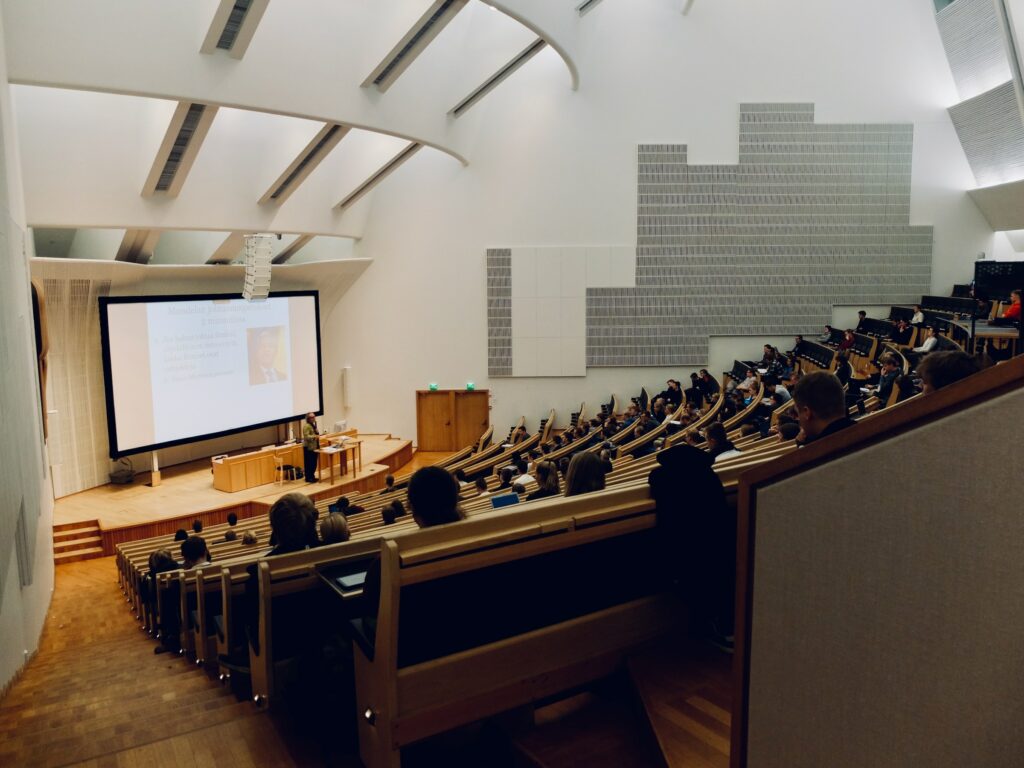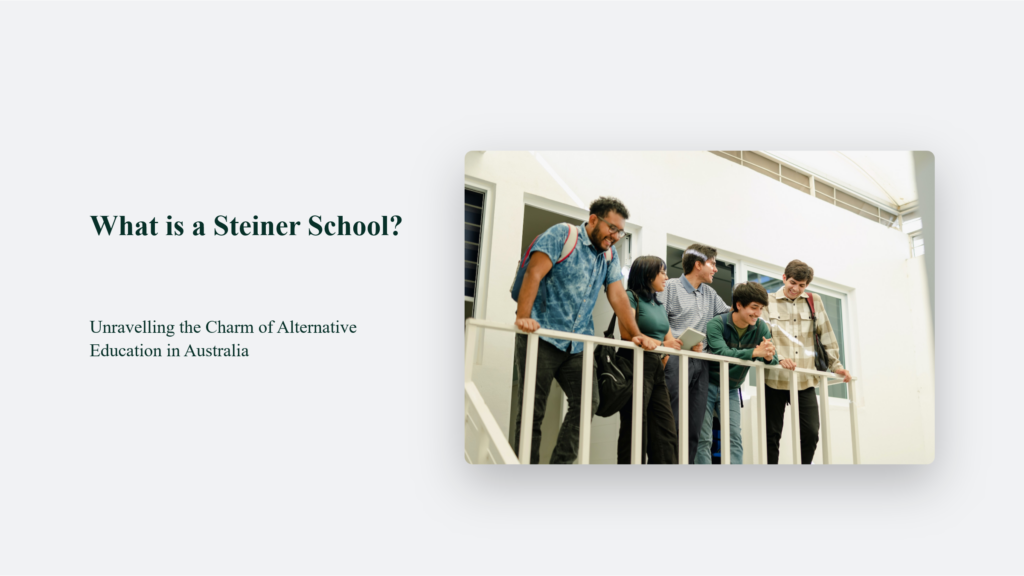

What is a Steiner School? Unravelling the Charm of Alternative Education in Australia

As Seen On
Picture this: a school where creativity is not just a subject but the soul of its curriculum, where birds chirping is as much a part of learning as the sound of chalk on a blackboard. Welcome to the world of Steiner Schools, a unique blend of academic rigour and artistic expression deeply rooted in the Australian educational landscape. But what is a Steiner School?

What is a Steiner School? More Than Just Education
Steiner Schools, also known as Waldorf Schools, are based on the educational philosophy of Rudolf Steiner, an Austrian philosopher. Imagine a school where education is not just about filling a bucket but lighting a fire – that’s the essence of Steiner’s approach. These schools aim to develop free, morally responsible, and integrated individuals with high social competence. It’s not just about the ‘what’ of learning but the ‘how’ and the ‘why’.
Steiner Schools in Australia:
In Australia, Steiner Schools showcases an interesting journey of growth and adaptation within the diverse educational landscape of the country. Steiner Schools, also known as Waldorf Schools, have significantly impacted Australia, mirroring a global trend in alternative education.
Steiner Education in Australia has expanded significantly since its early days. Rudolf Steiner Schools grew from five in 1985 to thirty-seven by the end of 1991, reflecting a growing interest in this alternative education model. The formation of the Rudolf Steiner Schools Association in Australia, proposed in 1979 and established in 1980, played a crucial role in this expansion.
This association was key in addressing concerns like teacher training standards and supporting the growth of new Steiner schools.
These schools are known for their holistic approach to education, focusing on the development of the whole child – intellectually, emotionally, physically, and spiritually. This philosophy has resonated with Australian values, leading to an increase in Steiner schools nationwide.
There are over 50 Steiner schools in Australia, with Steiner Education Australia being the peak body representing these institutions. The growth trend is not only in the number of schools but also in the inclusion of Steiner streams within some public schools in states like South Australia and Victoria.
Steiner schools’ curriculum is distinct and recognized by the Australian Curriculum Assessment and Reporting Authority (ACARA) as an alternative form of education. It emphasizes a balance between academic subjects, arts, and practical skills, aiming to nurture and engage each child through a culturally rich, holistic learning environment.
This educational approach’s popularity can be attributed to several factors. Parents are increasingly drawn to its holistic approach, which contrasts with many aspects of traditional, mainstream schools. The enriched curriculum spans early childhood, primary, and secondary education and includes unique elements like festivals, international exchanges, Indigenous outreach, and a digital technology course. Steiner schools in Australia have also focused on collaboration and community involvement, enhancing the education experience.
The rise of Steiner schools in Australia can also be linked to broader educational trends. With the introduction of policies like Gonski 2.0, which emphasizes critical and creative thinking, social skills, and problem-solving, the Steiner philosophy’s focus on these areas has gained more attention and appreciation.
As for the future, the demand for Steiner education continues to grow, with new and existing schools expanding their reach and offerings. This growth is expected to continue, aligning with the global expansion of the Steiner/Waldorf school movement.
Learning Through Experience: The Steiner Way
Learning through experience is a central tenet of the Steiner educational approach, which emphasizes the holistic development of students. The Steiner philosophy, rooted in the ideas of Rudolf Steiner, an Austrian philosopher and educator, seeks to cultivate a love for learning and strong moral and ethical capacities in students. This approach is particularly prominent in Australia, where there are over 40 Steiner schools, each integrating Steiner’s principles into their curriculum and pedagogy.
Steiner schools’ curriculum is highly experiential, focusing on making, doing, creating, and producing. This learning method is tailored to the student’s developmental stage, ensuring that activities are both relevant and appropriate. In early childhood, the emphasis is on creating a nurturing environment with natural play materials. Children engage in activities like cooking, painting, sewing, gardening, and caring for animals like chickens, which helps them learn practical skills while fostering a connection with nature.
The Steiner approach also values rhythms and repetition in daily, weekly, and yearly activities, seeing this as a way to provide children with a sense of security and predictability. This rhythm in the environment and routine is thought to protect the child’s life forces, promoting healthy development. Teachers in Steiner schools often serve as role models, demonstrating purposeful and useful work to guide the children’s will in a strong direction.
In the primary and high school years, the focus shifts to more complex conceptual and creative thinking. The curriculum in Steiner schools integrates various subjects like English, Mathematics, Humanities, The Arts, and Sciences, striving to give students a holistic view of the world. Subjects are taught interconnectedly, ensuring that students perceive their unity rather than viewing them as separate compartments. This method allows for a deep and enriching learning experience.
The uniqueness of Steiner education is also evident in the practice of ‘teacher looping,’ where children have the same teacher from early childhood through to elementary education. It allows for strong bonds between the teacher and the student, which plays a crucial role in child development.
Despite its many strengths, Steiner education has limitations, particularly for families looking to integrate technology into early learning. The Steiner approach places less emphasis on early exposure to technology and gadgets, focusing instead on experiential and hands-on learning.
Frequently Asked Questions:
What makes Steiner schools different?
Steiner schools focus on holistic education, integrating arts, academics, and practical skills.
Are Steiner schools academically rigorous?
Yes, while they approach education differently, they maintain high academic standards.
How does a Steiner school prepare students for the real world?
By focusing on emotional intelligence, creativity, and practical skills, they equip students with the tools to thrive in any setting.
The Bottom Line:
In conclusion, Steiner Schools in Australia offer a unique and enriching educational experience. They cater to the mind, heart, and hands, preparing students for tests and exams and life itself. In a world where education is often criticized for being too one-dimensional, Steiner Schools stand out as a beacon of holistic and creative learning.
Konger
Up until working with Casey, we had only had poor to mediocre experiences outsourcing work to agencies. Casey & the team at CJ&CO are the exception to the rule.
Communication was beyond great, his understanding of our vision was phenomenal, and instead of needing babysitting like the other agencies we worked with, he was not only completely dependable but also gave us sound suggestions on how to get better results, at the risk of us not needing him for the initial job we requested (absolute gem).
This has truly been the first time we worked with someone outside of our business that quickly grasped our vision, and that I could completely forget about and would still deliver above expectations.
I honestly can't wait to work in many more projects together!
Disclaimer
*The information this blog provides is for general informational purposes only and is not intended as financial or professional advice. The information may not reflect current developments and may be changed or updated without notice. Any opinions expressed on this blog are the author’s own and do not necessarily reflect the views of the author’s employer or any other organization. You should not act or rely on any information contained in this blog without first seeking the advice of a professional. No representation or warranty, express or implied, is made as to the accuracy or completeness of the information contained in this blog. The author and affiliated parties assume no liability for any errors or omissions.

